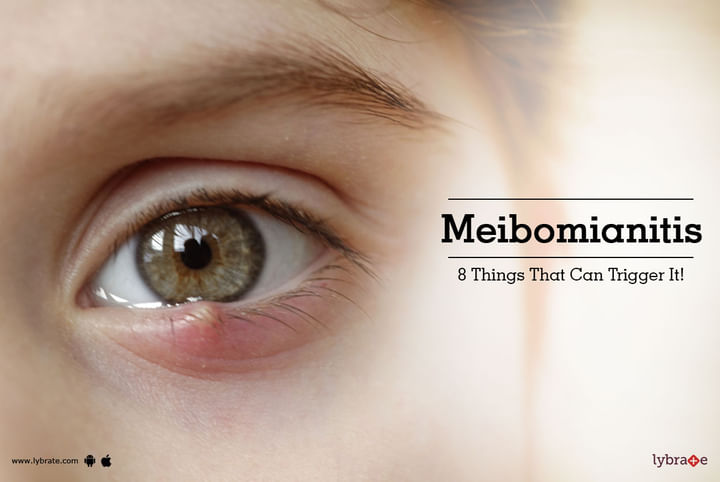Meibomianitis - 8 Things That Can Trigger It!
In order to see clearly, the eyes need to be constantly lubricated. This function is performed by small glands located in the eyelids known as meibomian glands. These glands secrete oil onto the surface of the cornea through tiny openings on them. Malfunctioning of this gland can create an excessive amount of oil.
When oil accumulates on the eyelids, it encourages the bacteria present in the eye and the skin around it to multiply leading to inflammation. This condition is known as meibomianitis. Adults are at a higher risk of suffering from this condition as compared to children.
Some of the factors that could trigger meibomianitis are:
- Allergic reactions
- Fluctuation of hormones associated with puberty and adolescence
- Acne and other skin conditions
- Lice or mites on the eyelashes
- Unsanitary contact lens solution
- Contaminated eye makeup
- Certain medications such as isotretinoin for acne that increases bacteria on the eyelids
- However, in some cases, a clear trigger factor may not be identifiable.
Some of the characteristic symptoms of this disease are:
- Dry eyes
- Constant watering from the eyes
- Inflammation and reddening of the eyelids
- Burning sensation in the eyes
- Itchiness
- Flaking of skin around the infected eye
- Heightened sensitivity to light
- Excessive blinking
- Crusting of eyelashes
- Blurred vision
- Frequent formation of sties
- Loss of eyelashes or abnormal growth of eyelashes
Regular cleaning of the eyes with warm water and abstaining from the use of contact lenses and eye makeup can help reduce irritation and manage the inflammation. Additionally, the doctor may also prescribe antibiotics or steroids in the form of pills, eye creams or drops. Artificial tears may also be recommended to patients exhibiting dry eye symptoms. If you wish to discuss about any specific problem, you can consult an Ophthalmologist.



+1.svg)
